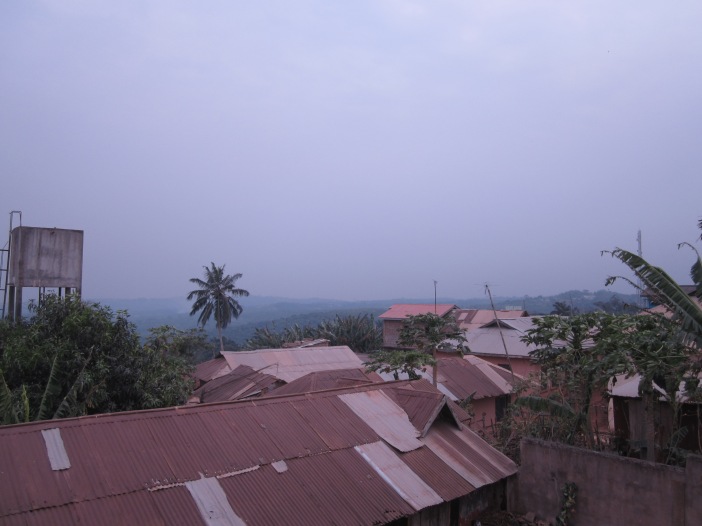One of the hardest tasks in communicating with friends and family back home about my time here in Ghana is that of telling stories that accurately and fully represent my experiences here. As is true in any culture and any context, there is both beauty and brokenness to be found in abundance.
My instinct is to attempt to drown out the narratives of an impoverished African continent and to highlight the countless hardworking individuals we have met. There is certainly wealth to be found here in Ghana, a country that has enjoyed relative political stability and has benefited economically from long-standing ties to European countries, adopting many facets of modern Western culture, for better or worse. Ghanaians exude pride for their cultures and their country, eager to share their foods, customs, and languages with newcomers.
But Ghanaians are also quite willing to share the short-comings of their beloved country. Power outages are a daily occurrence throughout most of the country these days, and many Ghanaians are struggling under the weight of a stagnant economy. Most qualified teachers refuse to report to schools in very rural areas due to lack of access clean water and basic covered latrines. Parents in many coastal villages and towns don’t prioritize their children’s education because they assume their children will become fishermen and wives of fishermen, two “professions” which don’t require a formal education. These children are particularly vulnerable to enslavement by fishermen from Lake Volta who are looking for cheap labor. And the list goes on.
It has been a humbling experience to hear Ghanaians talk about this country, and I feel like many of them have mastered this art of being fiercely proud of all the good things that can be found here while maintaining sufficient objectivity to critique that which is going poorly. I don’t think many Americans can do both of these things well. In general, I think we tend to have one or the other—a ferocious nationalism for some and a bitter disillusionment for others. I think the attitude of the Ghanaians I have spoken with is probably healthier; there are some aspects of life in the U.S. that are undeniably wonderful and I miss them dearly, and there are other things that I’ve actually rather enjoyed doing without.
I do not consider myself an artist, but if I were forced to claim a medium, it would be that of the written word. Language is a powerful tool and the sentences we choose may perpetuate or challenge the attitudes of others. I would be failing those who are suffering here in Ghana if I avoid telling their stories, and I would be failing those who have succeeded here in Ghana if I forget to tell theirs, too. I do not want to write sentences that are beautiful if they are not also true. It is a dangerous balancing act, and I am thankful that the hope and future of this country rests in the hands of Someone who knows and loves these people far more deeply than I ever can.

Thank you, Abby! It is always a treat to read about what you are learning. I agree with you that the Ghanaian attitude is healthier.
LikeLike
Keep sharing your “art”, and your thoughts with us! 🙂
LikeLike